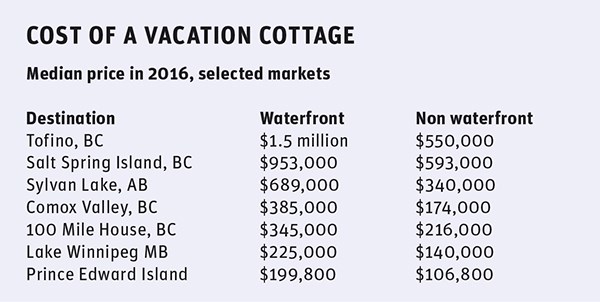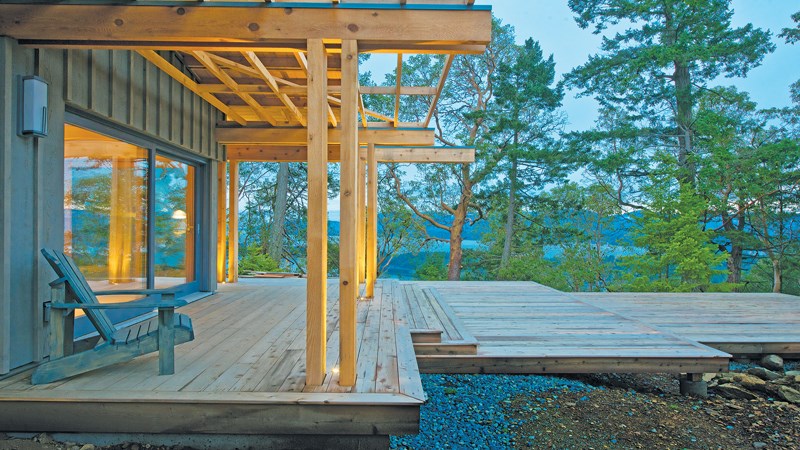Almost two-thirds of potential recreational property purchasers are between the ages of 36 and 51, according to a Royal LePage report on cottage country performance for 2016.
Baby boomers, defined as those between 52 and 70 years of age, were responsible for the remainder of recreational property purchases.
This comes at a time when millennials are struggling to find both affordable housing and the disposable income to purchase it. According to Statistics Canada, the homeownership rate of people below the age of 35 decreased from 51.3 per cent in 2006 to 46.9 per cent in 2011.
Vancouver and Toronto property owners under 35 will, on average, have virtually no disposable income in 2016, according to a Vancity credit union report released in May.
This does not appear to be a problem felt by the older generations who make up the majority of recreational homebuyers. Two-thirds of agents polled said they have seen increased sales in recreational properties, and over half expect 2016 sales to exceed those of 2015.
Americans are also coming north to purchase vacation homes and recreation properties. Although foreign sales makes up less than 10 per cent of recreational property sales, 64 per cent of foreign purchases originated in the United States, according to the poll.
“Canadians have been, for years, the principal foreign buyers of sunbelt property in states like Florida and Arizona, while a lower Canadian dollar has encouraged a new wave of U.S. buyers here,” said Phil Soper, president and CEO of Royal LePage
The majority — 65 per cent—of poll respondents who were looking into recreational properties said they were taking their retirement planning into consideration.
“We found it interesting that a majority of respondents identified retirement as a driving factor for a recreational property purchase consideration, but Gen Xers, sill decades away from retirement, were identified as the typical buyer in the current market,” said Soper.
The real estate company surveyed advisers who specialize in recreational property across Canada.
Many are renting
A separate study by Re/Max found that many Canadians plan to rent out their recreational property to help pay for it.
A survey of Re/Max agents and brokers, revealed that more than half reported seeing an increase in buyers who planned to rent out their property full- or part-time.
In a separate survey of Canadians, conducted by Leger, nearly 60 per cent said that, due to the emergence of vacation rental websites, it is easier for an owner to rent out an investment property today versus five years ago.
The Leger survey also found that millennials are sustaining demand for access to recreational properties. This provides an opportunity for buyers to finance their second homes, most notably in high-demand areas, the study stated.
Recent retirees were reported as being key drivers of demand in 83 per cent of regions surveyed, and 53 per cent of regions reported an increase in retiree buyers this year compared to last year.
As the large demographic retires, sellers who benefitted from significant price appreciation in cities like Vancouver are putting that equity into recreational markets, which is causing prices to increase in those regions. Some buyers who may still be five or 10 years away from retirement are taking the opportunity to enter those markets now, renting out their property until they are ready to retire.
This effect has been especially pronounced in British Columbia, where significant price increases in the Lower Mainland are encouraging buyers to invest in regions such as the Okanagan and the Gulf Islands, according to Re/Max
Re/Max agreed that the low Canadian dollar is having a positive effect by drawing foreign buyers into Canada’s recreational markets.




